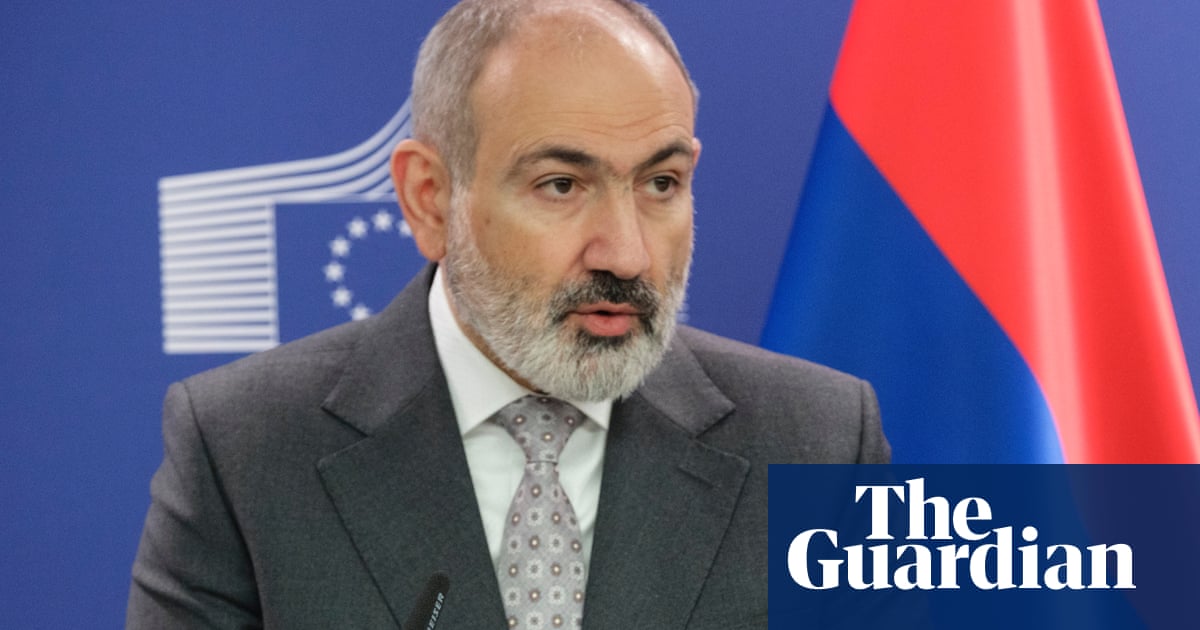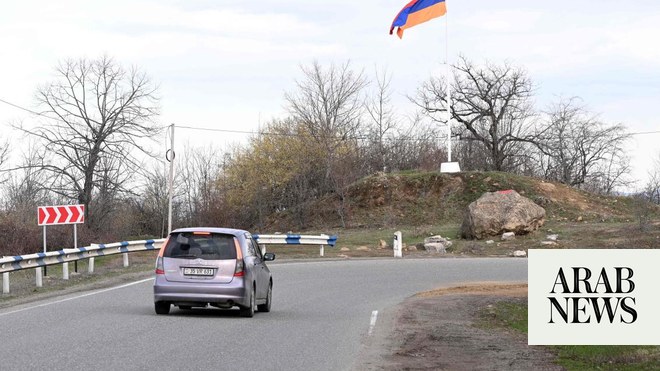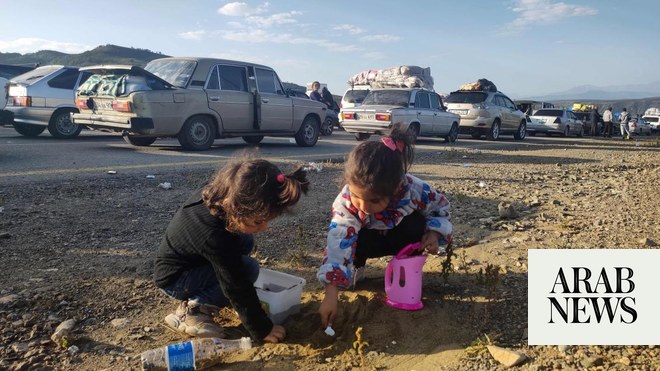
Nikol Pashinyan, the Armenian prime minister facing four days of protests against his decision to hand four villages to Azerbaijan, has urged Armenians to recognise that the way the issue is handled will determine the viability of the future peace process with its neighbour.
In an interview with British journalists in his office, Pashinyan, the leader of Armenia’s velvet revolution in 2018, said the governments of Armenia and Azerbaijan “need to convert the theoretical peace agenda into an actual peaceful reality”.
The two countries had been in a decades-long conflict since the 1990s when in September 2023 a lightning military offensive by Azerbaijan saw it take control of the Nagorno-Karabakh region that had been under ethnic Armenian control. Those dramatic events were followed by the speeding up of talks on a peace agreement between the two sides to stabilise relations.
The deal for the villages, a precursor to a wider agreement on borders between the two countries, has been praised by international diplomats as a landmark moment, but Pashinyan knows he risks losing domestic popular support if he makes what his people regard as too many unilateral and unreciprocated concessions.
He said that although the negotiated handover of the villages may be seen as a local matter, “the quality of implementation of these local agreements will increase or decrease trust in the peace agenda and the feasibility of peace”.
Praising the negotiators of the deal, he said: “They’ve tried, molecule by molecule, to build trust, to build confidence, and, if treated delicately and with care, it can develop. And if not treated with care, it may fall apart.”
The potential for the border dispute turning into a wider dispute drawing in Russia, Iran and Turkey across the Caucasus is real, Pashinyan’s aides acknowledge.
He had warned local villagers the alternative to a deal was war, and he knows in any conflict Armenia faces an overwhelming arms deficit.
The former Soviet republic had been on the military back foot for at least five years when Azerbaijan advanced into Nagorno-Karabakh and it was unable to prevent more than 100,000 ethnic Armenians being forced out of the region.
Russia, which had peacekeepers deployed in the territory, did not intervene to prevent Azerbaijan’s advance and Russian troops are now leaving altogether.
Pashinyan is trying to build alliances with Europe and the US in what he describes as an attempt to diversify foreign and security arrangements.
“The Republic of Armenia is ready to be as close with the European Union as the European Union sees possible,” he said. “At the moment, we seem to be moving in this direction because, very importantly, this is a public process. Transparency is of the utmost importance for us.”
But his drive to protect Armenia by building new alliances and seeking a peace settlement with Azerbaijan may fail if Azerbaijan abandons the lengthy peace talks in favour of land grabs. Azerbaijan has an 80% to 20% military advantage over his country, Pashinyan said.
The current domestic backlash is focused in Armenia’s northern Tavush region, where the government agreed on Friday to return four abandoned villages it had occupied since the 1990s to Azerbaijan as the start of a wider process to agree their mutual borders.
Former residents of two of the villages, Baghanis and Voskepar, have several times blocked the highway that connects Armenia with Georgia, and tried to prevent the removal of landmines.
They resent suddenly being put on the frontline, but the two countries are committed to delimitation and demarcation of their states based on the borders that existed in 1991 at the time of the collapse of the Soviet Union.
Pashinyan, defending his strategy for peace, said Armenia had shown itself to be candid and sincere, and was seeking to defend the territory of Armenia.
“Beyond the internationally recognised borders, Armenia has no aspirations, no claims, and we hope that in the border delimitation process, the territorial integrity of the Republic of Armenia will be restored,” he said.
He called for realism about what the Armenian armed forces could achieve. “I was approached by a woman who was forcibly displaced from Nagorno-Karabakh, and she asked how realistic is it that we will have a possibility to go back to Nagorno-Karabakh and she said: please give me a direct and candid answer. I told her given the perceptions that prevail, I do not consider it realistic.
“I cannot lie to you, because if it were realistic, then the displacement from Nagorno-Karabakh would not have happened.”
He said Armenia was doing its best to house and find jobs for the Nagorno-Karabakh refugees, but the cost was estimated at €1.5bn (£1.3bn) over 10 years.
He also revealed his anger that Russia had rendered the regional security pact the Collective Security Treaty Organisation (CSTO) meaningless by repeatedly refusing to prevent Azerbaijan’s invasions into Armenia. He said Russia had in effect admitted the CSTO had “no zone of responsibility” in Armenia.
Armenia has currently frozen its membership of the pact. Pashinyan said: “If things continue the way they are, if the political statements continue, then that line will be crossed, and resuming participation in the CSTO will then be rendered impossible in practice.”












